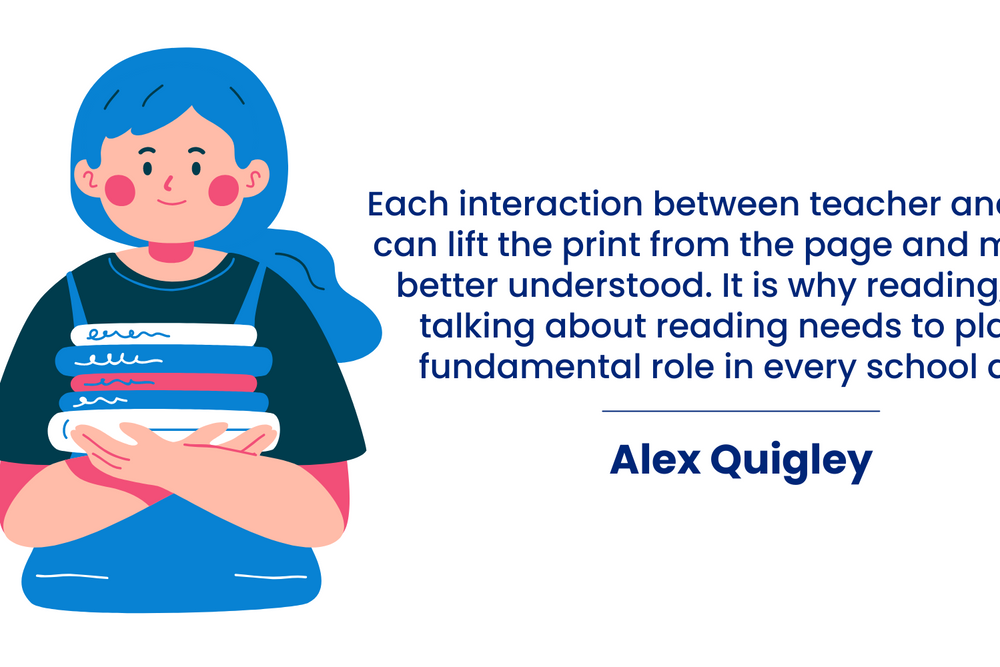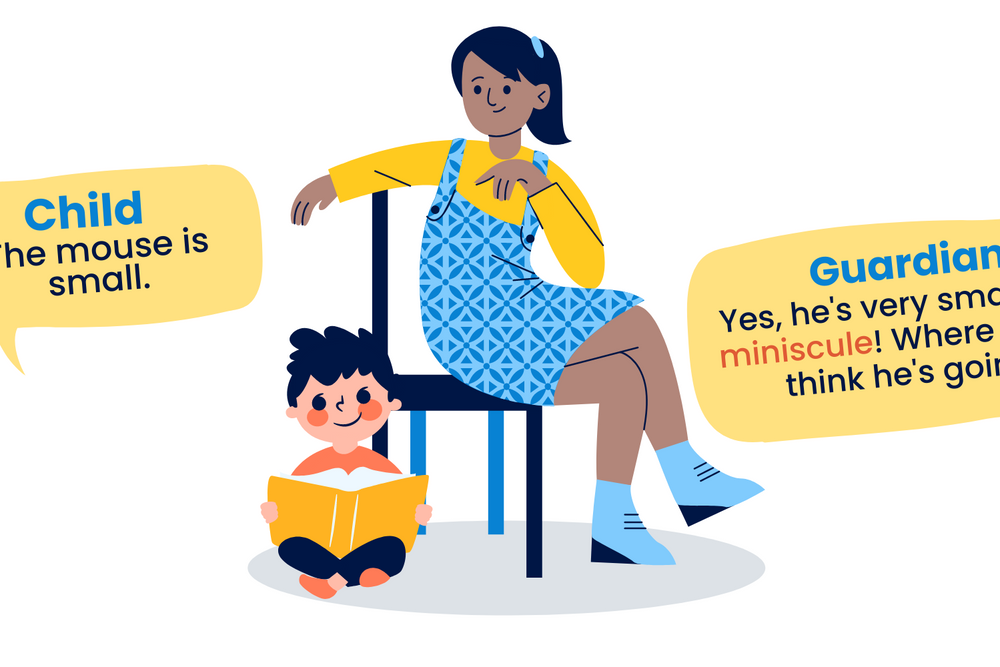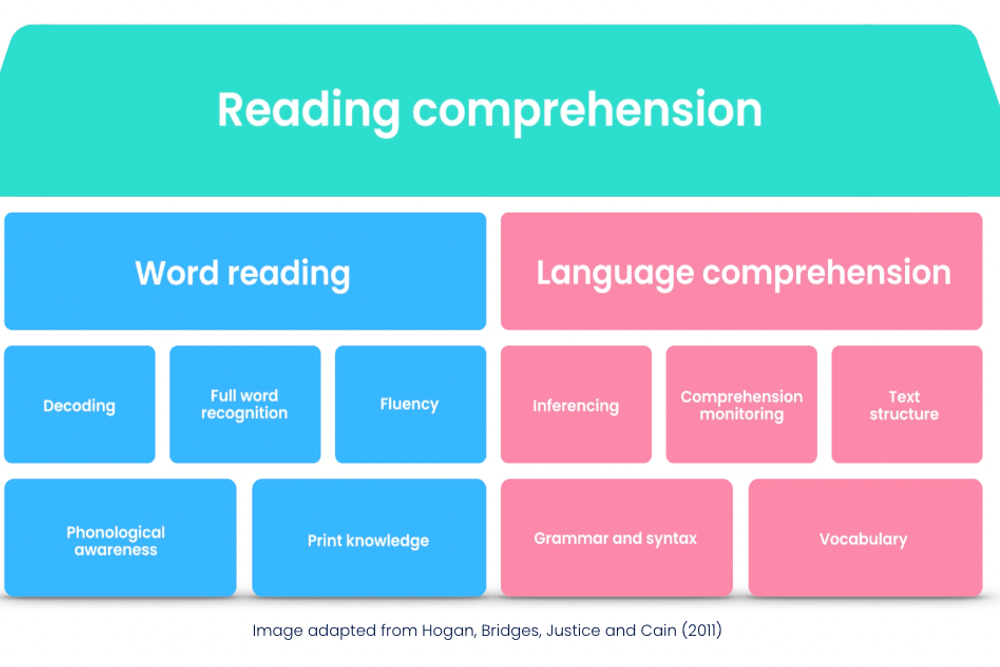A limited vocabulary in a child’s early years can lead to language gaps during education, preventing them from accessing the language of their academic lives.
The average GCSE paper, of any subject, has a reading age school of 15 years and 5 months. One third of learners in the UK do not have this reading level when they sit their exams - the language gap, established in early years, has a drastic effect on a child’s success in school and beyond.
This doesn’t mean that there’s nothing that can be done about it. Interventions such as explicit vocabulary teaching have great success in closing the literacy gap. However, this doesn’t negate the fact that literacy in early years is crucial for ensuring this gap doesn’t arise in the first instance.
Literacy in early years: parents and guardians
Before education, the building blocks of improving literacy are formed at home. In fact, at age three, between 80% and 96% of the vocabulary a child knows comes from their parents’ or guardians’ vocabulary. This demonstrates that one of the main factors for how children develop their literacy in early years is an exposure to words.
There’s some debate around how many words the gap is between children exposed to ambitious vocabulary at home and those who aren’t - for example, some believe this gap is in the thousands, whereas some cite it as 30 million (Hart and Risley) - the gap is present nonetheless.
One of the main strategies for improving literacy in early childhood is exposing children to a wide range of reading materials. This involves reading to your child, generating excitement around books and practising inference skills, even before your child is able to read themselves - eg. questions such as, “What might happen next? What do you think this means?” The power of doing silly voices for the characters can’t be underestimated either - it helps increase fluency in your child’s spoken language.
Books aren’t the only way to improve literacy in early years! You can reinforce your child’s literacy skills further by using spoken language, such as listening to audiobooks, having conversations with your child in full sentences and singing nursery rhymes. All of these examples of oracy strengthen your child’s literacy skills, setting them up for success throughout their lives.
But how do you make time for this high-quality communication around books? Often, parents and guardians struggle to find time to prioritise literacy, especially those working long hours, and this can lead to feelings of worry and guilt.
To this we say, “Don’t worry!” Research by Law et al. (2017) has found that it’s the quality of time spent working on a child’s literacy skills, not quantity, that has the greatest impact on their progress. No matter how much or how little time you have to spend, make sure you’re spending it involving your child in high-quality discussion and enthusiasm about books. In doing so, you’re setting them up for a lifetime of success.

“Each interaction between teacher and pupil can lift the print from the page and make it better understood. It is why reading and talking about reading needs to play a fundamental role in each school day.”
Literacy in early years: teachers
As a teacher, you can’t guarantee that a child is going to experience a literacy-rich environment at home. No matter how many strategies we use to involve parents, there’s no quick fix for bringing a love of literacy into a learner’s home. Looking at the research for how literacy in early years impacts learners in later life, it’s easy to feel worried about the implications of that lack of involvement.
But the language gap doesn’t have to define a learner’s life. There are intervention strategies to close that gap, giving struggling learners the key to unlocking their potential both in education and beyond.
Structured conversations
High-quality conversations aren’t just a strategy for the home. Back and forth conversations between children and teachers have a significant positive impact on their vocabularies, especially when those conversations are structured around ambitious language.
When talking to learners, try levelling up their vocabulary through your responses.

Upgrading the word "small" to the word "miniscule".
This introduces learners to ambitious vocabulary in contexts they can understand, as well as incorporating inference skills - an understanding of these skills forms the building blocks of what makes reading fun, encouraging positive attitudes towards literacy that last for life.
Direct, tracked vocabulary instruction
As well as having high-quality conversations between teachers and learners, the Education Endowment Foundation’s guidelines for improving literacy in KS1 recommend direct, tracked vocabulary instruction, along with spelling and phonics.
Even in KS1, a great way to think about teaching learners to read - and improving their literacy overall - is through the extended metaphor of the Reading House. See the diagram below, originally coined by Hogan, Bridges, Justice and Cain, and taken from our webinar on improving learners’ ability to read complex academic texts.

The Reading House by Hogan, Bridges, Justice and Cain.
When teachers at your school have sufficient CPD in literacy, phonics, spelling and vocabulary, they can use this Reading House to identify areas learners are struggling to develop.
Once learners progress to KS2 and above, it becomes clearer when fundamental literacy blocks in KS1 haven’t been consolidated. This is when explicit literacy interventions, such as Bedrock’s core curriculum, become increasingly important.
The consistent, algorithm-driven curricula Bedrock Learning provide help to close the vocabulary gap, unlocking learning through literacy for learners with an initial disadvantage due to socioeconomic background. To top it off, Bedrock’s self-marking algorithm collects diagnostic data you can use to guide your interventions, giving teachers clear visibility of learners’ progress.



